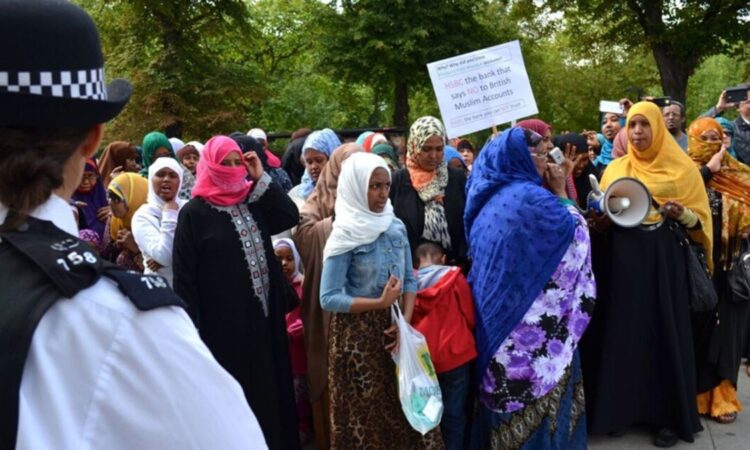
In an era where financial integrity and security are paramount, Muslim charities in the UK find themselves at the sharp end of debanking practices, sparking a call for change and accountability from financial institutions.
Abdulsami Arjumand, representing the Muslim Charities Forum, underscores the detrimental impact of debanking on humanitarian efforts, donor trust, and the timely delivery of aid. High-profile cases, including Finsbury Park Mosque and Islamic Relief, showcase the severe consequences of unjust account closures, prompting a nationwide debate on the need for fair banking practices and transparent financial transactions.
Debanking: A Persistent Challenge
Debanking, the unilateral closure of bank accounts often without explanation, has plagued UK Muslim charities for nearly two decades, diverting resources from humanitarian efforts to operational challenges. This issue affects donor trust and project deliveries, as organizations like Finsbury Park Mosque and Islamic Relief have experienced firsthand. Their accounts were closed by HSBC, impacting operations and community trust, particularly due to flawed risk assessments that wrongly accused them of connections to terrorism. Furthermore, the Co-operative Bank’s closure of pro-Palestinian groups’ accounts adds to the complexity of the situation, highlighting a pattern of financial exclusion based on religious or political affiliations.
Regulatory Spotlight and Political Action
With over 343,000 bank accounts closed in 2022 alone, the Financial Conduct Authority’s report has brought the issue of debanking into the regulatory spotlight. The Muslim Charities Forum’s advocacy points to a pressing need for fair banking practices, greater transparency in financial transactions, and a robust appeal process for affected organizations. The call for political action and regulatory changes aims to protect charities from unjust high-risk labeling and ensure equitable banking engagements, fostering an environment where humanitarian efforts are not hindered by financial barriers.





